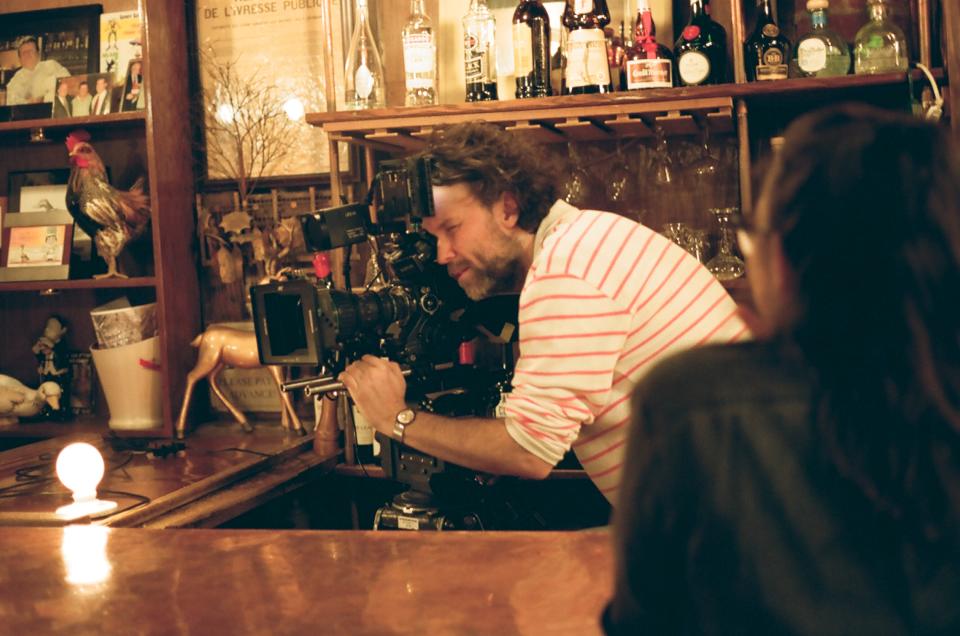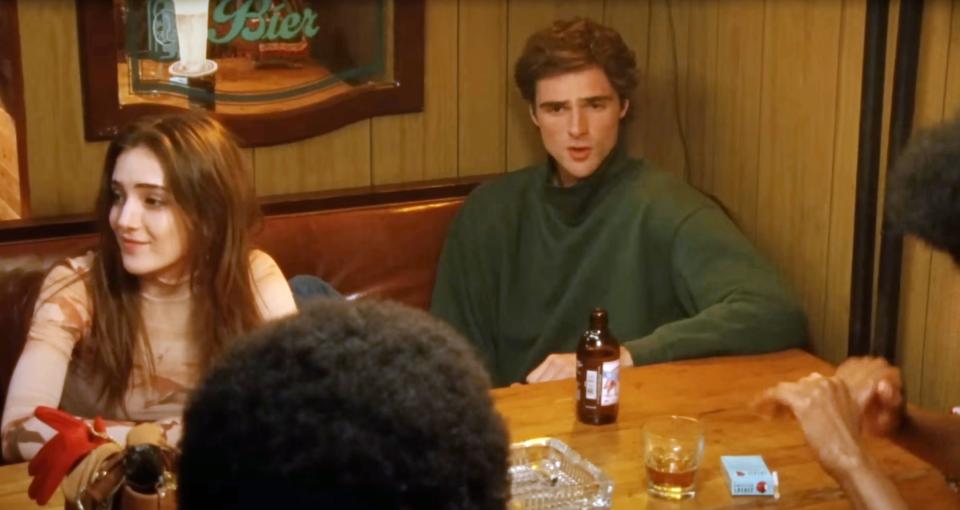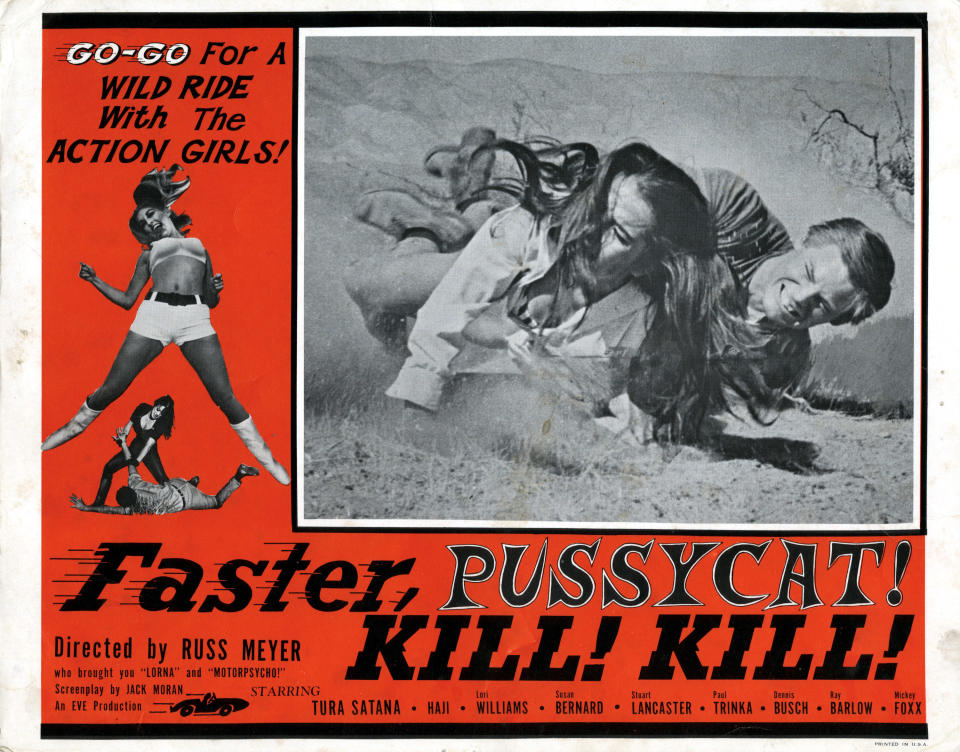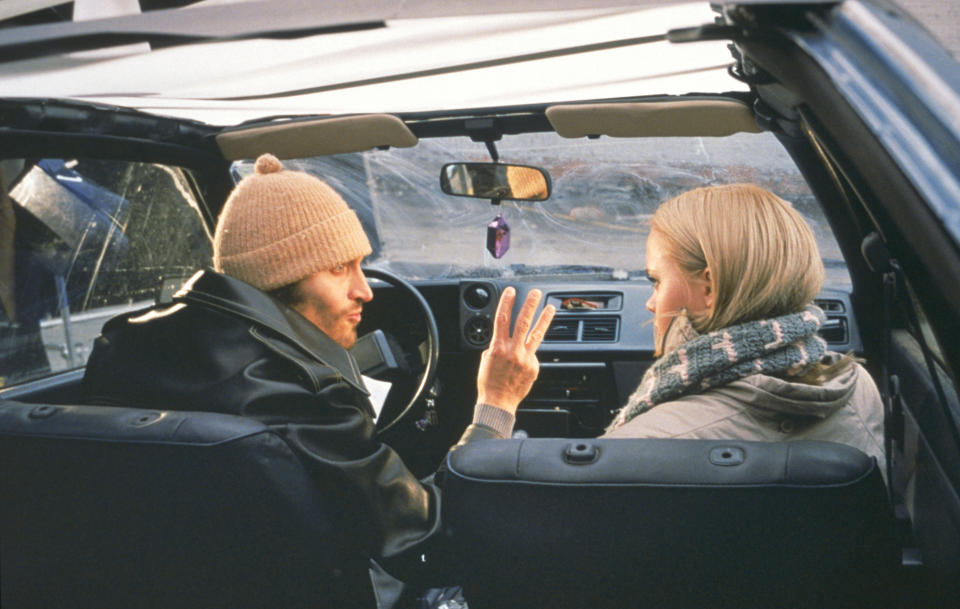Sean Price Williams on His ‘1000 Movies’ Book, Vincent Gallo, and Missing ’90s Classics Due to ‘Pretentious Young Man Sh*t’

On the indie side of filmmaking life, Sean Price Williams has seen it all. He’s worked with the Safdies, Alex Ross Perry, Nathan Silver, Robert Green, and Athina Rachel Tsangari, and often more than once. He’s the premier chronicler of New York City independent movies behind the camera, typically shooting on celluloid, and bringing surreal, gritty poetry to character-driven stories that feel on the ground like portraits of versions of ourselves.
One of the most unabashedly movie-loving cinematographers working today, Williams last year moved to directing for the sprawling, scratchy-edged tale of East Coast youth, “The Sweet East,” which remains in theaters and features stars like Jacob Elordi, Simon Rex, Jeremy O. Harris, and Ayo Edebiri.
More from IndieWire
Aubrey Plaza: 'I'd Rather Humiliate Myself' for Roles to Make Audiences Feel More Confident
'The Girl with the Needle' Review: This Compelling Period Yarn Packs a Shocking and Modern Sting
But even more recently than that directorial debut, he released a “1000 Movies” book via Metrograph Editions, a simple, unadorned paperback that offers, rather than commentary, pages listing his favorite essential films and their directors Williams thinks you should seek out.
The book project started out as a spreadsheet shared with friends before it was published on Letterboxd in 2017, and now lives in bound form as a diary so devoid of comments that you’re almost invited to make your own notations as you flip through it. The titles range from obscurities to outright classics, but Williams, in his selection, is never trying to be pretentious. Filmmakers highlighted include Josef von Sternberg, Stanley Kubrick, Blake Edwards, Akira Kurosawa, Mel Brooks, Luis Buñuel, Russ Meyer, Jacques Demy, Ridley Scott, Béla Tarr, Claire Denis, Woody Allen, Roman Polanski, Chantal Akerman, Jia Zhangke, Michael Mann, Maurice Pialat, and Alfonso Cuarón.
There’s also a range of high and low culture in Williams’ recommendations (which IndieWire parsed in more close-up detail earlier). The book encompasses the usual canon fodder but with a spotlight on lesser-known titles from time-honored directors, including both shorts and features, that aren’t impossible to track down.
IndieWire spoke with Williams, a New Yorker if that wasn’t obvious from his very New York movies, about the book over the phone. He’s candid about his thoughts on filmmakers like the ever-on-the-verge-of-controversy Vincent Gallo, as well as more populist filmmakers and titles (especially from the ’90s) he ignored as he came into being as a cinephile, growing up in video stores.
He’s 46, and so after seeing movies theatrically as a kid made fair use of torrent sites, as many of us did, hunting for scans of forgotten classic movies before platforms like Criterion Channel, Metrograph at Home, and MUBI made them more available and ready for proper appreciation. (Look at Andrzej Żuławski’s “Possession,” largely unknown until recent years, when it’s now regarded as a 1980s masterpiece.) Williams most recently shot the latest film from “Chevalier” director Athina Rachel Tsangari, “Harvest,” in Greece, which he talks about in our interview below.
This interview has been condensed and edited for clarity.
IndieWire: Your “1000 Movies” book originated as a spreadsheet that became a Letterboxd list posted in 2017, which you’ve of course since updated. Do you still use that site as a tool?
Sean Price Williams: I’m not on there. What would I say? … I’d spend a year finding every single movie I ever saw and log it or whatever. It’s great because it changes the pantheon who loves great films. There are all kinds of movies now that people love that no one even knew about 15 years ago. I think that’s great. There are conversations on there that are valuable. I do look sometimes. If we screen a movie, I’ll go see if anyone commented on it.
You just shot a new movie directed by Athina Rachel Tsangari with Caleb Landry Jones and Harry Melling, and you filmed it in Greece. What can you say about this movie?
I’ve got to go do the color-grade in Greece. I’ll know what it is then. They’ve been working on it tirelessly. I don’t really know what it is yet. It’s a period piece, but it’s like a not-committed-to-period period piece. It’s a bit off the wall and tonally adventurous.
Is that a common phenomenon where you shoot something and don’t know what it is?
Yeah. I like that. Except when it comes back, and all my favorite stuff has been cut out of it, and they changed the direction of stuff in the edit, which doesn’t happen very often, but that’s a bitch.
You also shot Nathan Silver’s movie “Between the Temples,” which premiered at Sundance earlier this year. Were you there at the festival?
No, I don’t go there. I really have a terrible time at pretty much all the festivals that are still going. All the good ones are gone, the ones I liked, the fun ones. [With] the bigger festivals, there is so much distraction. I end up not seeing any movies anymore at the festivals, which feels terrible when you leave and barely saw anything. I myself can’t even stay disciplined enough to see the films, and then I am at very bad parties with very unfun people instead. And it’s a lot of money. Those festivals don’t give you anything. Cannes, Sundance. I’m just spending money for nothing. I always wish in the end I just stayed in New York, so I don’t go anymore.

How did you consume movies growing up? Were you a VHS person who eventually moved into torrenting?
Well, I am now [using torrent], and I also still buy DVDs, Blu-rays, VHS pretty constantly. I’m buying and downloading for whatever’s not available. Most of the things in that book are available. I wasn’t trying to be esoteric and difficult. I do want the list to be something that someone like myself at different ages would look at and think, “hmm,” and would give it a try. I love my movie books I had when I was younger that I would just mark up, highlight, make little comments. I have collectible list books like “Krautrocksampler,” this record book by Julian Cope, I think my copy would be worth $500, but it’s so marked up.
What’s your relationship to collecting physical media nowadays?
I’m reading about this comeback, which is wonderful. I really wish someone would start making VCRs again. They’re making tapes again. They’re making crazy types, like LED light-up VHS tapes, but no one’s making the VCRs anymore. I actually just got my VCR fixed this week, because the heads were all gunked up. I’ve never stopped collecting. I have a huge collection of discs, records, and then, in my ex-girlfriend’s apartment, I have a whole room of VHS still.
Do you still have access to that room?
Not very regularly. We’re still friends, and it was just such a special room that I kind of convinced her to treat it like a landmark, an untouchable landmark.
So she’s still holding onto all these?
Until I grow up and get a real house or something, yeah.
I see what you’re saying about the VHS thing. I have a VHS of Peter Greenaway’s “The Cook, The Thief, His Wife & Her Lover,” but no VCR. And yet the movie is unavailable anywhere else. Peter Greenaway has a very cynical view of film distribution, and his movies are largely not accessible.
When I got into movies, the easiest [Greenaway] ones were “The Cook, The Thief,” “The Belly of an Architect,” “Drowning by Numbers.” You had to get a bootleg of “The Falls” or the earlier shorts, and now those are kind of more available than the really popular ones. Other than “Draughtsman’s Contract.” That’s part of the fun of this whole thing [is] how I’ve watched movies that were completely unavailable become the most easily accessed. Just the trends of availability for films.
We’re doing this Kim’s Video rehabilitation thing at the Alamo, and I am stacking up all these tapes just to see if there are things available, and it’s wild that movies with big movie stars just aren’t available now. Or maybe they’re on YouTube now, and in six months, they get pulled.

In terms of your moviegoing life, was there a year that was especially formative for you?
Since I was a kid, I’ve always been so devoted to movies. I moved to New York in ’99, 2000, and there were movies early on that were strong. I think it was 2002 or 2003, whenever MoMA was under construction, and they were showing movies at the Gramercy Theatre, and they had a Nicholas Ray series, which was somehow life-changing. I just felt like it cracked open new ways of watching films for me, like a kind of a depth that I hadn’t really found, and then I was able to watch more personal films differently, it was just cracked my head open a bit. So it was whenever that season was when they were at the Gramercy.
So it wasn’t necessarily new releases you were drawn to. It was repertory.
When I was a kid, “Empire Strikes Back” came out. That’s an impression I still swear I remember at three years old. “Superman II.” Growing up with Spielberg, it was made for my generation, these films, and it was kind of perfect. It was also the only time in 100 years of Disney, where Disney was kind of struggling and almost bankrupt, so we didn’t have that kind of tyranny. We had a lot of variety.
1997 was a big year for me. I saw “Titanic” for the first time that year and then “The Ice Storm,” too young, but both changed my life as a moviegoer. You would have been 20 years old then. What did the ’90s mean to you?
I missed the ‘90s through sheer pretentious young man shit. I hated “The Ice Storm.” I hated “Titanic.” I hated “The Sweet Hereafter.” I was just hating everything new almost straightaway because I was discovering all these old European films at the time. I was working in a video store in Baltimore, and I had this access to stuff. Everything new was just putrid in my mind, and I missed out on a lot of things. When “Gummo” came out, that brought me back to taking a new movie seriously. I never saw “Forrest Gump.” I never saw a lot of these things. I saw “Braveheart” five years later, and I liked it, but I was just avoiding this stuff in the ‘90s.
The list really starts to get thin in the ‘90s. I’ve discovered a couple movies this past year that inevitably will go on the list. But I have to give time to see how they feel. They have to have time. I can’t just see a new movie and say, “Yup, that’s on the list.”
Was there anything you felt was too esoteric to put on the list in your book?
Very often, I’ll discover a movie alone at three in the morning, and I’ll show it to friends, very excited, and when I show it to friends, it reveals itself to be not so good. I get wrapped up in atmosphere and my mood, and I can be really wrong.
Which is, of course, good. My closest friends and I strongly disagree on many filmmakers. [Robert] Aldrich, Clint Eastwood. The only film [in the book] that is impossible to see is Vincent Gallo’s “Promises Written in Water.” I considered taking it off because I don’t want it to seem like, “Look, I’ve seen this movie no one’s seen.” But it’s a movie that’s always in my head, these images. I am probably, at this point, misremembering almost all the things I think I love about the film.

Is there a filmmaker we haven’t heard from in a while you’d like to come back?
I think we’re gonna see a very big Russ Meyer comeback, because his films have been really not available for a long time. He’s still like, you know, canon cult, but like, I feel like most young people, if they’ve heard of “Faster, Pussycat! Kill! Kill!,” they haven’t actually seen it or seen any of his films, and I’m kind of excited, especially with the sexual politics of today, for the rest of Meyer’s movies to really make a big, a big splash. And I think that’s going to happen. As far as new guys, I love Vincent Gallo.
I’m not sure how receptive the market will be to a new Vincent Gallo movie given recent and past controversies against him. His collaborators have made allegations of abuse and torment, and Christina Ricci has not spoken highly of her “Buffalo ’66” experience. But that movie was huge for me.
He’s got a new movie he’s acting in that’s going to come out [“The Policeman”], but I’d like to see him behind the camera again.
“Brown Bunny” was even bigger for me [than “Buffalo ’66”]. It just surprised me so much. “Buffalo ’66,” what I love is the ideas and the attempts and the invention, even when it doesn’t work. You can see a guy tirelessly trying things. Which I like, but I like that about Jerry Lewis movies, too. You sacrifice a lot just to try things out.

Well, talk about another person whose famous movie will not be seeing the light of day. “The Day the Clown Cried.”
A lot of people think they’re gonna see it, and they’re not. I have a friend who’s seen it and, yeah, according to him it’s not that important to be seen. I also would love to think the new [Francis Ford] Coppola movie would be great, but we’ll see.
He’s always trying something different, which has to be the case with “Megalopolis.”
I think of [Coppola] as the one who inspired all those guys, producing “THX 1138,” which I recently added to the list. I thought I’d grown out of that movie, but watching it again, oh my god, there’s so much good stuff going on. I really think a lot of that is Coppola and Walter Murch. Coppola was not the puppeteer but the guy who encouraged experimentation.
It was great talking to you, and congratulations on the book.
Lists, to me, are kind of silly, but they also serve a purpose. It helps the memory when you’re getting older. People make fun of me, like, “You’ve got a book out. You’re a writer!” I know I’m not. [Laughs.]
You didn’t write anything. It’s literally a list in book form!
One of these days! [Laughs.]
“1000 Movies” is currently available from Metrograph Editions.
Best of IndieWire
The 13 Best Thrillers Streaming on Netflix in May, from 'Fair Play' to 'Emily the Criminal'
The Best Father and Son Films: 'The Tree of Life,' 'The Lion King,' and More
The 10 Best Teen Rebellion Films: 'Pump Up the Volume,' 'Heathers,' and More
Sign up for Indiewire's Newsletter. For the latest news, follow us on Facebook, Twitter, and Instagram.

 Yahoo News
Yahoo News 
